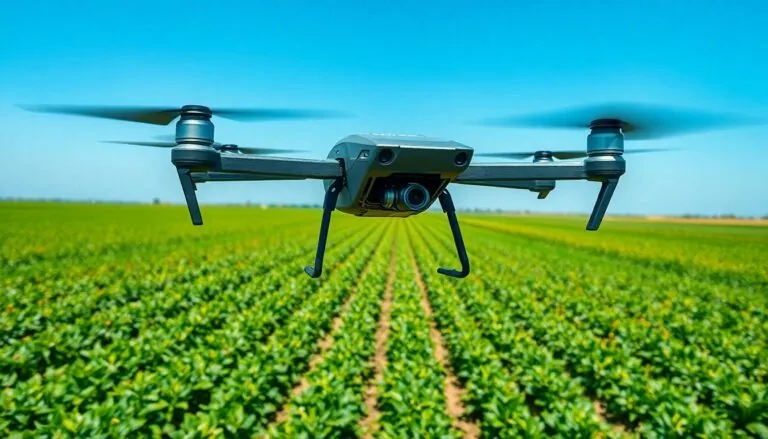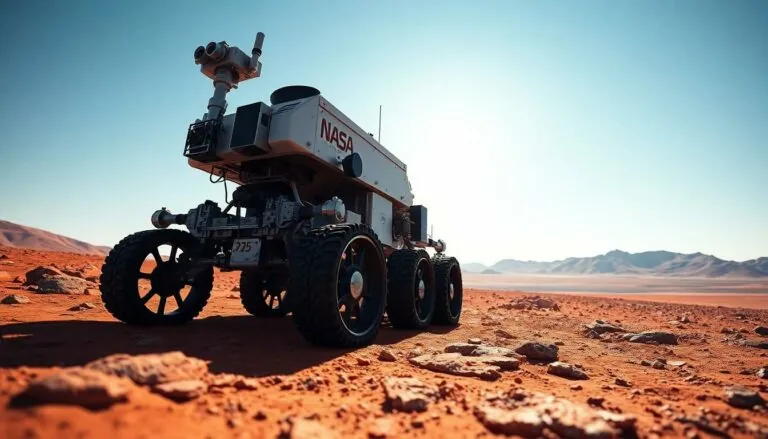Table of Contents
ToggleIn a world where technology evolves faster than a cat meme goes viral, the technology space is buzzing with innovation and excitement. From artificial intelligence that predicts your next snack craving to gadgets that make your morning coffee, it’s a playground for the curious and the ambitious. This is where dreams of the future collide with the reality of today, and it’s not just for the tech-savvy nerds anymore.
The Evolution Of The Technology Space
The technology space has undergone significant changes over the decades. Innovations continue to define how society interacts, communicates, and learns.
Historical Milestones
The 1940s marked the birth of computers, beginning with ENIAC, the first electronic general-purpose computer. The 1970s introduced microprocessors, which revolutionized computing by making devices smaller and more powerful. The personal computer era began in the 1980s, shifting technology into homes and offices. The internet emerged in the 1990s, drastically changing how information is shared and accessed. Mobile devices took center stage in the 2000s, leading to the rise of smartphones and applications that changed communication forever. These milestones laid the groundwork for various technologies that empower users today.
Current Trends
Artificial intelligence leads the current technological landscape, influencing everything from customer service chatbots to advanced data analytics. Smart gadgets, such as home assistants and wearable devices, enhance daily living with convenience and connectivity. The rise of cloud computing offers businesses scalable and efficient solutions for data storage and management. Cybersecurity remains a top priority as digital threats grow in complexity and frequency. Companies increasingly adopt sustainable technologies, emphasizing renewable energy sources and eco-friendly practices. Overall, these trends shape the future of the technology space, reflecting society’s evolving needs and preferences.
Key Players In The Technology Space

The technology space features a range of influential companies and innovative startups shaping its direction. Understanding these key players provides insight into current trends and future developments.
Major Companies
Apple leads in consumer electronics, known for its iPhones and Mac computers. Microsoft dominates software with its Windows operating system and cloud services through Azure. Google excels in search engines and online advertising while continuously advancing in artificial intelligence. Amazon revolutionizes e-commerce, offering cloud computing services via Amazon Web Services. IBM focuses on enterprise solutions and quantum computing. These major companies drive technological advancements that impact everyday life.
Emerging Startups
Many startups focus on niche areas within technology, pushing boundaries and offering fresh solutions. Neuralink pursues innovations in brain-computer interfaces, aiming to improve neurological health. Rivian captures attention with electric vehicles, catering to sustainability-conscious consumers. SpaceX disrupts the aerospace sector by reducing launch costs and enhancing space exploration capabilities. These emerging startups contribute to the vibrant ecosystem, indicating promising trends and future possibilities in technology.
Innovations Shaping The Technology Space
Recent innovations significantly influence the technology space, transforming how individuals interact with the world. Two crucial areas leading this charge include artificial intelligence and blockchain technology.
Artificial Intelligence
Artificial intelligence, or AI, acts as a cornerstone of modern technology, enhancing various sectors. It powers chatbots, automates tasks, and analyzes immense datasets for insightful decision-making. Companies leverage AI to provide personalized customer experiences, drastically improving service efficiency. In healthcare, AI algorithms assist in diagnosing diseases earlier than traditional methods. This technology reshapes industries, emphasizing the importance of innovation and adaptability in a rapidly evolving landscape.
Blockchain Technology
Blockchain technology revolutionizes data security and transparency across sectors. It serves as a decentralized ledger system capable of securely recording transactions. Financial institutions employ blockchain to streamline processes, reduce fraud, and ensure robust data integrity. Other industries, like supply chain management, benefit from enhanced traceability of products. Anonymity and security provided by blockchain increase trust among users, fostering more reliable digital transactions. As adoption expands, this technology stands poised to redefine operational frameworks globally.
Challenges Facing The Technology Space
The technology space encounters various challenges that affect its growth and innovation. Security and regulatory issues present significant hurdles for companies navigating this landscape.
Security Concerns
Cybersecurity threats pose severe risks to organizations and consumers alike. Data breaches lead to stolen personal information, causing financial losses and eroding trust. Additionally, ransomware attacks disrupt business operations, necessitating robust security measures. Companies often invest in advanced security protocols and employee training programs to mitigate these threats. Simultaneously, emerging technologies like artificial intelligence aid in identifying vulnerabilities faster, enhancing overall protection. The growing sophistication of cybercriminals emphasizes the need for continuous development of security solutions.
Regulatory Issues
Navigating regulations proves challenging for tech companies, particularly as governments introduce new laws. Compliance with privacy regulations, such as GDPR in Europe and CCPA in California, complicates data management practices. These frameworks require organizations to implement stringent policies regarding user data collection and storage. Furthermore, variances in laws across different regions add to the complexity of operating globally. Tech firms often enlist legal experts to ensure adherence to these ever-evolving regulations. Balancing innovation with compliance remains crucial for maintaining competitive advantages in the technology space.
Future Prospects Of The Technology Space
The technology space is set for rapid advancements, with innovations poised to redefine daily life.
Upcoming Technologies
Innovations such as quantum computing promise to solve complex problems far beyond current capabilities. Augmented reality enhances user experiences by integrating digital information with the physical world. Smart home ecosystems leverage interconnected devices, allowing for seamless automation. Robotics, particularly in manufacturing and healthcare, enhances efficiency and precision. Biotechnology applications transform healthcare solutions, enabling personalized medicine. Each of these technologies builds momentum, indicating a bright future for the tech landscape.
Predictions And Trends
Experts predict artificial intelligence will expand into new sectors, enhancing creativity and strategic decision-making. Smart cities will emerge, utilizing data analytics for improved urban living and sustainability. The rise of 5G technology promises faster connectivity, facilitating smoother user experiences in mobile and IoT applications. Additionally, cybersecurity investments will increase as organizations prioritize data protection in response to growing threats. Emphasis on sustainability will drive tech companies to develop cleaner, more efficient technologies. These trends indicate a technology space that adapts rapidly to consumer needs and environmental challenges.
The technology space is a dynamic landscape that continually reshapes how individuals and businesses interact with the world. As advancements in artificial intelligence and smart gadgets enhance everyday life, the potential for innovation remains limitless. Key players and emerging startups are pushing boundaries, driving a vibrant ecosystem that fosters creativity and problem-solving.
Challenges such as cybersecurity threats and regulatory compliance must be addressed to ensure sustainable growth. However, the focus on sustainability and the rise of technologies like quantum computing and 5G signal a promising future. As society’s needs evolve, so too will the technology space, paving the way for solutions that prioritize efficiency and environmental responsibility. The journey ahead is filled with exciting possibilities that will redefine the way people live and work.




